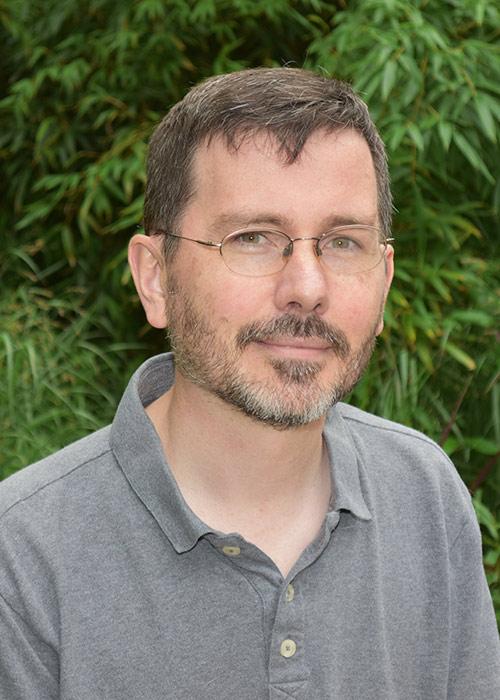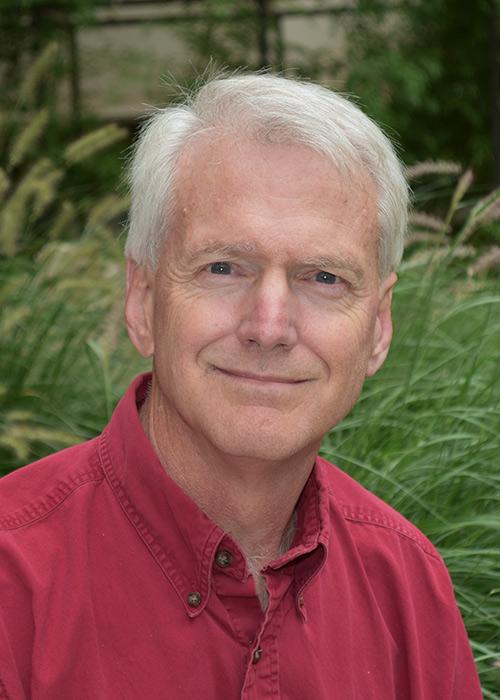The University of Washington Department of Biostatistics Graduate Program welcomes a new team of leaders this academic year, with Ken Rice as the new graduate program director effective January 3, 2022, and Jim Hughes as the director of the MS capstone program effective July 1, 2021. “Both Ken and Jim have already demonstrated exceptional leadership shaping the curriculum of our graduate program as EPTEC members and as advisors of a number of graduate students,” said Lurdes Inoue, professor and department chair of biostatistics.
“We look forward to their innovative ideas as they transition into their new roles!”
Ken Rice, new Biostatistics graduate program director

Ken Rice, who is a professor of biostatistics at the University of Washington, has been named the next Biostatistics Graduate Program Director in the Department of Biostatistics.
Rice succeeds Tim Thornton, who has served as director since September 2019.
Rice began his appointment in July 2021 and is working with Thornton to transition into the role during autumn 2021. Gitana Garafalo will remain in her role as Graduate Program Advisor.
“Tim has done great work, particularly meeting the challenges the pandemic has brought to the graduate program,” said Rice. “With Gitana's invaluable assistance, I look forward to getting us all back together - providing students and faculty the opportunity to spark research ideas into life.”
Rice has been a member of the department’s core faculty since 2004. His research focuses primarily on developing and applying statistical methods for complex disease epidemiology, notably cardiovascular disease, and he leads the Data Coordinating Center for the new National Institutes of Health (NIH) Polygenic Risk Score Diversity Consortium.
Rice is a fellow of the American Statistical Association and has been a fellow of the Royal Statistical Society since 2002. He has a BA in Mathematics and a PhD in Biostatistics from Cambridge University in the UK.
Jim Hughes, new Biostatistics Master of Science Capstone Program Director

Jim Hughes, a professor of biostatistics at the University of Washington, has been named the next Master of Science (MS) Capstone Program Director in the Biostatistics Graduate Program in the Department of Biostatistics.
Hughes assumed this new role in July 2021, replacing current program director Adam Szpiro who has been instrumental in designing and fostering the new accelerated MS program over the past six years.
“It has been a genuine privilege to serve as Program Director over the last two years for the fantastic students in the MS Capstone program, and I am confident great things lie ahead under Jim’s strong leadership,” said Adam Szpiro, an associate professor in biostatistics and the first MS Capstone Program Director at UW.
Hughes, who has been heavily involved in graduate and undergraduate teaching and student advising in UW Biostatistics, is looking forward to his new role.
“Adam has done a great job launching the capstone program and I'm looking forward to continuing to develop the program and opportunities for our students,” said Hughes.
In addition to advising students, Hughes holds professor appointments with the Fred Hutchinson Cancer Research Institute in the Vaccine and Infectious Disease Division, and Public Health Sciences Division.
Hughes is a biostatistician who applies statistical methods to problems in HIV/AIDS and other sexually transmitted diseases including cervical cancer, which is caused by human papillomavirus. He specializes in the design of randomized controlled trials involving clusters or groups of subjects, such as studies of HIV risk in transgender populations, and also studies statistical methods for dealing with misclassified data.
Hughes earned his PhD in Statistics and MS in Biomathematics from the University of Washington and has been a member of the core faculty in the Department of Biostatistics since.
Inoue added, “As they step down from their roles, we are extremely grateful for the outstanding leadership both Tim Thornton and Adam Szpiro devoted to our graduate program. Both faced challenges as they learned program operations and adapted them to the new realities imposed by the pandemic — and they did a wonderful job.”